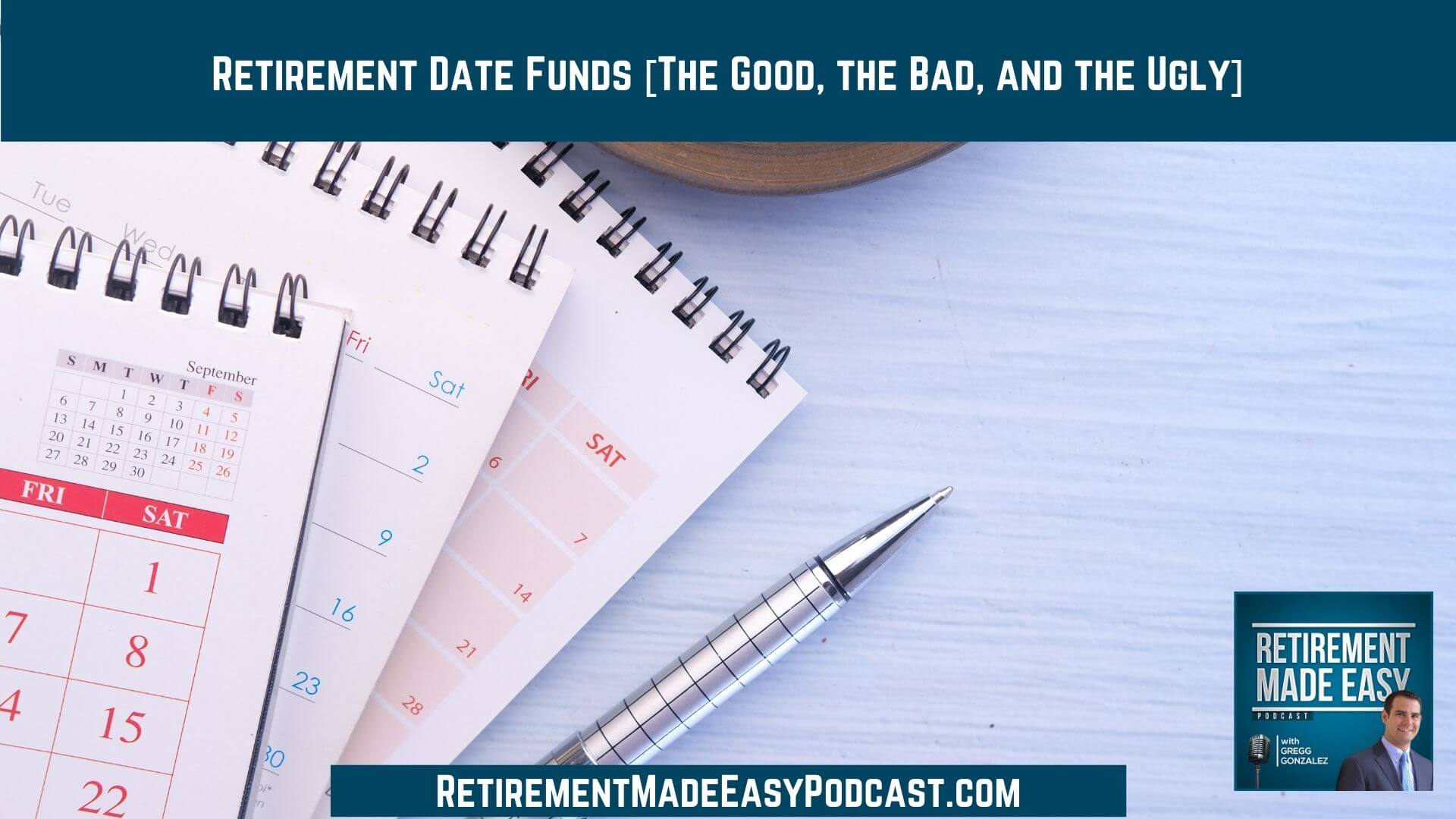
When is a retirement date fund appropriate? Who might need one? What are the downfalls of retirement date funds? Many people use these in their 401k or 403B. So in this episode of Retirement Made Easy, I talk about the pros and cons—and why I’m personally not a fan. Don’t miss it!
You will want to hear this episode if you are interested in…
- [2:28] The whole idea behind retirement date funds
- [7:10] Who retirement date funds work well for
- [8:18] The downsides of retirement date funds
- [11:09] Should you keep your retirement date fund?
- [14:10] Dig a little deeper into your investment plan
The whole idea behind retirement date funds
Retirement date funds are allocated or managed based on your age and your date of expected retirement. They’re typically done in five-year increments and based on when you turn 65. The idea is that the investment strategy gets more conservative as you get closer to retirement.
What does that mean? The fund will decrease the amount you have invested in risky investments (i.e. stocks) and increase conservative investments (bonds). It assumes that as you get closer to 65 you’ll want to be more conservative.
The thought process isn’t terrible—but it’s a cookie-cutter approach. It’s saying that every 50-year-old should invest exactly the same way. I think it’s a huge mistake. It doesn’t take your unique and personal needs into account.
Maybe you have a lower risk tolerance than a colleague the same age. Maybe your colleague got a late start investing for retirement. If they’re in catchup mode, their portfolio needs to be positioned for growth. Yours may not.
Who do retirement date funds work well for? Listen to hear my thoughts.
The downsides of retirement date funds
These funds tend to overweight international stocks. Using a Fidelity retirement date fund as an example, I see that over 28% of the fund is invested in international stocks. It may not be right for you, but they don’t make any special exceptions for anyone.
Another downfall is that 5% of this fund is in a money market that is earning 0.09%. If you’re invested in a retirement date fund, you’ll want to understand how your money is invested. How might that change over time as you get older?
Dig a little deeper into your investment plan
The premise that every person should invest the same way just doesn’t make sense. It’s ludicrous. Many people invest in these in their employer-sponsored retirement plans. They know it’s diversified and there is some management—but I don’t believe it should be your sole investment.
If you love supreme pizzas but hate green peppers, wouldn’t you want to eat somewhere that allows you to customize your pizza to you? It may even cost you less to remove things you don’t want and select what you do want. Build your own pizza.
Your investment portfolio should be crafted based on your goals, your risk tolerance, and what you want your investments to do for you. Don’t settle for the cookie-cutter approach. You can do better at or below the cost of a retirement date fund.
Resources & People Mentioned
Connect With Gregg Gonzalez
- Email at: Gregg@RetireSTL.com
- Podcast: https://RetirementMadeEasyPodcast.com
- Website: https://StLouisFinancialAdvisor.com
- Follow Gregg on LinkedIn
- Follow Gregg on Facebook
- Follow Gregg on YouTube



